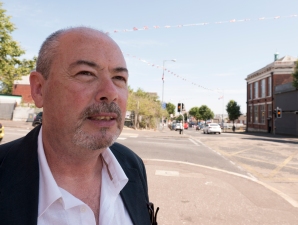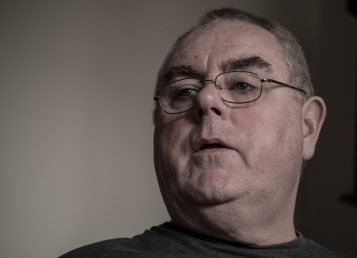
A Peter Taylor documentary in the BBC’s Age of Terror series, says that Martin McGuinness knew about plans for the Enniskillen bomb in 1987. Surprise surprise!
It really isn’t news that Martin McGuinness was the leader of the Provisional IRA’s Northern command during the 1980s. Practically every book on the history of the Provisionals tells us that.
It is only a matter of extrapolation then to work out how much responsibility he had for carnage during the Troubles.
So, when Peter Taylor, the investigative journalist connects McGuinness to the Enniskillen bomb, as he did in his Age of Terror documentary this week, he is, in one way, merely stating the obvious.
By similar extrapolation we can connect McGuinness to the IRA’s campaign against construction workers, the assassination of loyalists, the long-range sniper attacks on British soldiers and virtually any category of IRA activity you like to mention; the torture and assassination of suspected informants, for instance, the bombing of a fun run in Lisburn.
All Taylor really told us about McGuinness is that he was a top provo.
It is what we knew.
Logically his telling us changes nothing and yet, potentially, it changes everything.
McGuinness himself may think that most of us believe his claim that he left the IRA in 1973.
No one at all believes that, least of all those who loudly proclaim it.
But we know our Martin and forgive him, don’t we?
We’re really impressed that he has turned out to be so amicable and cheerful, having snarled at us so much over the years about ‘the cutting edge’ and tripe like that.
It’s not that we don’t know what he did, just that we don’t want it shoved in our faces, lest we should doubt our decision to forgive him, for that is what we have done.
It is hard to reconcile the gritty, bitter hard man of the eighties with the affable poet, fisherman, DFM of today.
One thing the contrast tells us is that McGuinness is deeply relieved to be where he is now, with his bloody past behind him.
The alternative futures that he would have envisaged for himself 20 years ago must have included a grisly death or a long term of imprisonment.
Compare, for instance, the fates of many Palestinian leaders of similar standing: Arafat trapped in his bombed bunker for months before he dies, where even the toilets didn’t work; Yassin and Rantissi bombed from the air. It was fortunate for Adams and McGuinness, and those around them, that the British opted for a strategy of infiltrating and managing the IRA rather than destroying it.
If the British had changed that policy at any time, they would not have announced it and given the army council a chance to scatter. Adams and McGuinness would probably just have gone the way of INLA leader Ronnie Bunting, shot dead in his home by slick assassins that most republicans sincerely believe were from the SAS. McGuinness lived most of his adult life with the expectation that that was a turn his fortunes might take.
We would simply have woken up one morning to the news that he was dead.
But how secure is Martin McGuinness, even now, against embarrassing, even politically crippling, disclosures from his past?
Surely someone who touched the lives of so many has left evidence and witnesses behind of the offence he has given.
In a normal political environment a contender for political leadership is scrupulously vetted for depth charges in history: affronted lovers, bank statements, hijinks on You Tube. Where politics is normal, no party in its right mind would run Martin McGuinness, with his past.
The danger of embarrassing disclosures is too great.
We may know broadly what job he had in the IRA; it’s doubtful we could bear the details, and we can’t be sure we’ll forever be spared them.
This is the theme of David Park’s brilliant new novel The Truth Commissioner, in which a Sinn Fein minister – the Minister for Children and Culture – is threatened by the exposure of past deeds, some of which were not cultural or considerate of children at all. Logically, everyone knows, in broadbrush terms, the kind of things the minister did. Yet, when a plausible claim is suddenly made explicit, his position becomes untenable.
On the one hand we know what McGuinness did; on the other, we know little or nothing of the detail. Nor might we want to, just yet, when disclosure might create such political damage.
Some know very clearly. Ian Paisley is a member of the Privy Council and entitled to the fullest briefing he could ask for.
Old peelers know.
They probably marvel at the irony that McGuinness, having chosen so many of the victims in Northern Ireland, got to help pick the victims commissioners too.
But this is an irony for future reflection.
It may be that when we have moved so far beyond the Troubles that we no longer see politics as an essential contrivance for sparing us their resumption, we will look with a colder more critical eye at the characters and careers of the people we have elevated. And we may not remember that this generation showed extraordinary forbearance and forgiveness. We will just wonder if it had a particular fondness for dangerous men.
Read Full Post »



